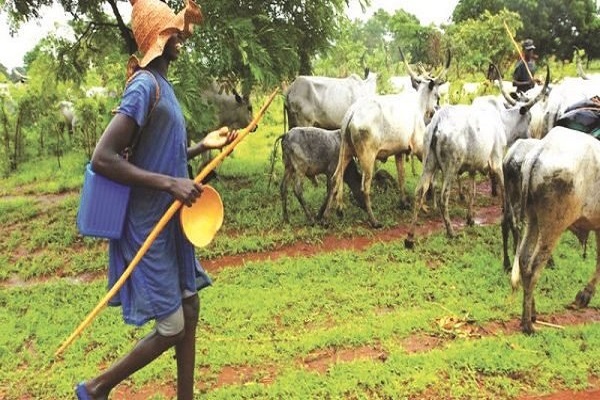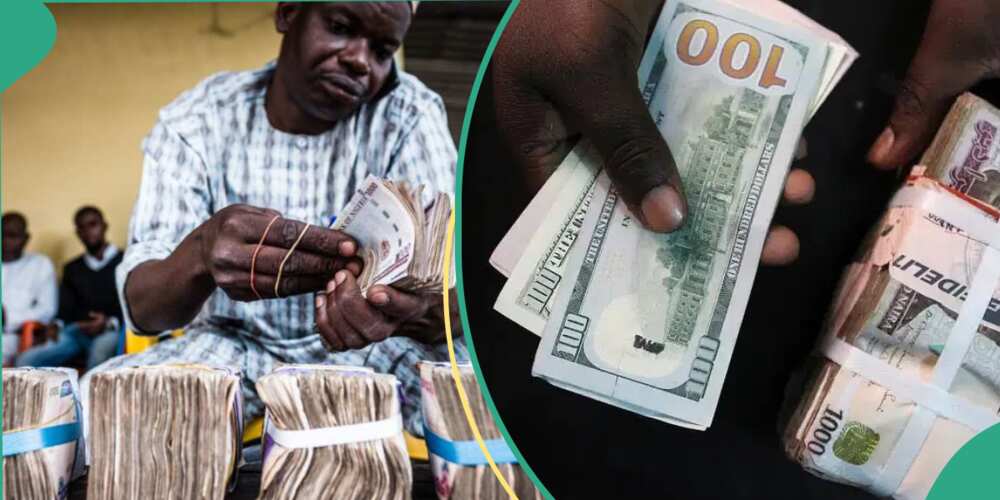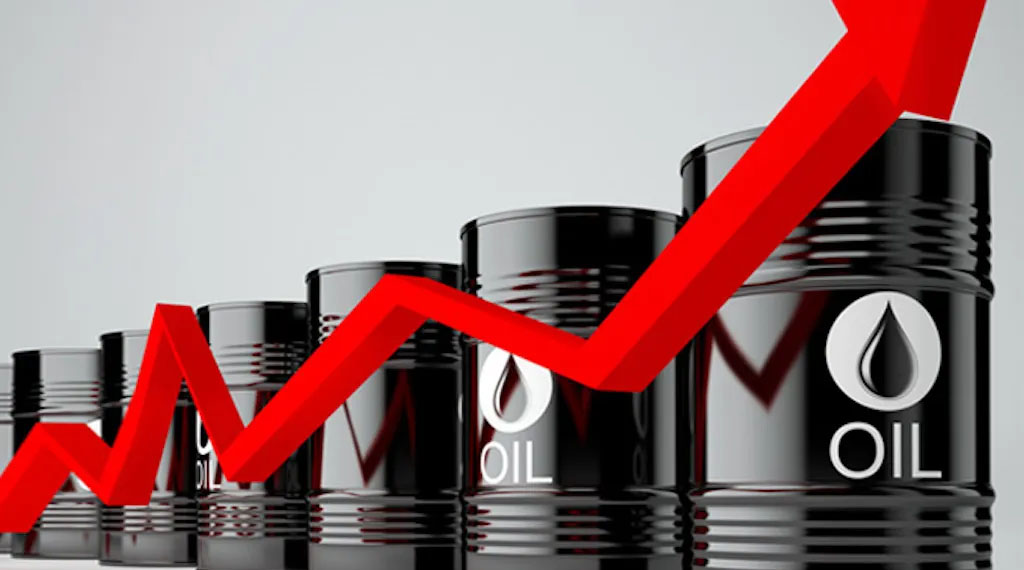Business
Herders defy southern states’ ban on open grazing

It seems to be business as usual for some herders in parts of the southern states especially in the rural areas, as they continue to graze their livestock in the open despite the ban on such activities.
Reports from our correspondents across the states suggest that little has changed in the way herders have been grazing their cattle , goats and rams since the take-off of the ban on September 1.
The only exception so far is Ondo State where the State Security Network – Amotekun – on Thursday arrested three herdsmen and 56 cows for allegedly violating the anti-grazing law.
The suspects were arrested at Iwara, a community in Ikare Akoko, headquarters of Akoko North East Local Government, after allegedly destroying a farmland.
The Commander of Amotekun Corps, Chief Adetunji Adeleye, confirmed the arrest and vowed that the law would be enforced across the state.
He asked leaders of herders’ associations to educate their members on how to conduct themselves without creating conflict.
The arrested persons were fined for their actions.
The Seriki Hausa Akungba Akoko, Alahaji Idris Jumil Ismaila, thanked the governor of Ondo State for allowing them to settle out of court and promised to get herders comply henceforth.
It was gathered that herders in the rural areas of the Southwest,Southeast and Southsouth are going about their business unmolested.
A resident of Anambra State, Dr Elo Aforka, told The Nation that the pronouncement of Governor Willie Obiano on the ban was insufficient without a proper law.
“The only way to run a society is by law. Any civil society is run by law and not by utterances,” Aforka said.
He alleged that clashes between the cattle breeders and communities in the state persist and the people are yet to see the ban implemented.
Another social commentator in the state, Emma Okafor, told The Nation that the impact of the ban on open grazing had not been felt in Anambra State
He said the governor was expected to present a bill to the State House of Assembly, based on the agreement reached by the 17 Southern governors, yet, he refused to act.
Information and Public Enlightenment Commissioner, C -Don Adinuba, had earlier told The Nation that the government inaugurated a committee to ensure harmony between herders and locals.
The leader of Miyetti Allah Cattle Breeders Association of Nigeria, MACBAN, Alhaji Gidado Sidikki, corroborated the government’s claim.
A farmer in one of the rural communities in Awka North Local Government Area of the state said herders still encroach on farms.
But the 62-year old woman, who does not want her name mentioned, said harassment from the herders has reduced a bit, compared to two -three years ago, adding that the herders still move around the state with their cows.
The situation is not different in Abia State where a law banning open grazing is already in place.
Asked why violators had not been arrested, the Chief Press Secretary of Governor Ikpeazu, Mr. Onyebuchi Ememanka, said the Police, Abia State Command should explain to the public why they have been unable to enforce the law on anti-grazing as signed into law by the governor of the state.
A resident of the state, Mr. Ohaeri Stephen, said the Police should ensure compliance with the law.
Many herders exit Ebonyi
Investigation showed that a large number of herders relocated from Ebonyi State before the take- off of the ban on open grazing and following two attacks on residents of Ohaukwu and Ishielu local government areas earlier in the year.
A resident of Onicha Local Government Area, who gave his name as James, said the herdsmen were a terror in the area.
“They raped women, attacked and killed people and destroyed farmlands. They contributed to the increase in food prices as many farmers suffered poor yield due to the destruction caused by cattle.”
Ban has restored calmness, says Bayelsa govt
Bayelsa State Information, Orientation and Strategy Commissioner Ayibaina Duba, says the enforcement of the anti-open grazing law passed on March 10, 2021 has been effective and restored calmness in the state.
“Since we started enforcing the anti-open grazing law more than six months ago, we have not had the
– The Nation
Business
Naira records five-month highest gain, sells below N1000/$ at parallel market

Naira records five-month highest gain, sells below N1000/$ at parallel market
The naira continued its positive showing against the United States dollar on Monday, selling below N1000/$ in some segments of the parallel market.
Newstrends reports that the Federal Government, groups and some individuals have mounted a spirited campaign for those hoarding the dollars to push them out as naira continues to appreciate.
On Monday, the naira was offered in some parts of Lagos and Abuja between N995 and N1,050 per dollar in the parallel market. It was N1,230/$ on Friday.
The latest gain, being over five-month highs, came in the wake of the Iranian attack on Israel and a rise in the crude oil price.
Goldman Sachs, American investment bank economists, had earlier predicted that the naira’s bullish momentum on the foreign exchange market would likely cause it to trade for less than N1,000 per US dollar in the coming months.
According to a report by Nairametrics, the group claimed that the rally in Nigerian currency helped recover from large losses after two devaluations since last June by being bolstered by capital inflows and successive interest rate hikes.
In March, Goldman Sachs projected that the Naira would appreciate to N1,200 per dollar in 2024.
At the official foreign exchange market, the rate was put at N1,136/$ in contrast with N1,205/$ last Friday.
The top bank has implemented several policy initiatives in recent months to bring stability to the foreign exchange market.
The CBN increased interest rates to 24.75% at the most recent meeting of the Monetary Policy Committee (MPC), which helped it recover losses from the two devaluations that occurred since June of last year.
Further gains for the naira result from the CBN’s ongoing intervention, which involves selling foreign exchange to Bureau De Change operators at a revised rate.
The market anticipates higher inflows of US dollars from the sale of foreign currency bonds in the second quarter as disclosed by Finance Minister Wale Edun.
The Federal Government has just offered high-yield short-term debt products at a premium to entice overseas capital into the economy.
The Middle East’s geopolitical unrest and
Notwithstanding a drop in Nigeria’s production volume, crude oil prices have risen beyond $90.
Nigerian grades of oil are trading at a premium to the ICE Brent benchmark.
The Middle East’s geopolitical unrest and the anticipation of an Iranian government strike on Israel caused oil prices to soar.
Business
Breaking: Nigeria’s inflation rises to 33.2%, says NBS

Breaking: Nigeria’s inflation rises to 33.2%, says NBS
The National Bureau of Statistics (NBS) says the nation’s inflation rate rose to 33.2 per cent for the month of March 2024.
This represents a 1.5 per cent increase over 32.7 per cent recorded in February 2024.
The NBS disclosed this in a new report released on Monday.
It explained that the rise was primarily due to higher costs of food, beverages, energy, and housing. Compared to February 2024, the inflation rate in March increased at a slower pace, with food inflation reaching 40.01% year-on-year.
NBS attributed the spike in food prices to the rising costs of items like garri, millet, yam tubers, and others. On a month-on-month basis, food inflation slightly decreased to 3.62% in March 2024.
Urban inflation also increased to 35.18% year-on-year in March 2024, while rural inflation stood at 31.45%.
Core inflation, which excludes volatile agricultural products and energy, was 25.90% year-on-year in March 2024.
Overall, the rising cost of living in Nigeria is evident in the significant increase in inflation rates across different categories.
It is crucial for policymakers to address these challenges to alleviate the financial burden on the population.
Business
Nigeria’s oil production drops by 2.8 million barrels in one month

Nigeria’s oil production drops by 2.8 million barrels in one month
The Nigeria Upstream Petroleum Regulatory Commission (NUPRC) has confirmed the data released by the Organisation of Petroleum Exporting Countries (OPEC), indicating a consecutive decline in Nigeria’s oil production for the second month in a row.
According to NUPRC reports, crude drilling operations in March saw a notable decrease, with production dropping from 1.42 million barrels per day (bpd) in January to 1.23 million bpd in March, marking a significant loss of approximately 2.8 million barrels over the month.
Minister of State for Petroleum Resources (Oil), Senator Heineken Lokpobiri, acknowledged the declining trend, attributing it to issues on the Trans Niger Pipeline (TNP) and maintenance activities by oil companies in Nigeria during the period.
READ ALSO:
- Army kills terrorists invading Kaduna with arms, ammunition
- El-Rufai’s Ally, Aisha, arrested over Facebook post against Gov Sani
- FG begs workers as electricity union insists on strike over tariff hike
However, beyond crude oil, condensate production, which typically falls outside OPEC’s quota calculation, also experienced a decline in March, further exacerbating Nigeria’s overall production slump.
-

 metro6 days ago
metro6 days agoTribute: C.K George, Epitome of Courage, by Kunle Awobodu
-

 metro5 days ago
metro5 days agoTroops arrest ISWAP commander involved in Army General, 3 soldiers’ killing in Borno
-

 News5 days ago
News5 days agoBREAKING: Ex-Abia gov, Ogbonnaya Onu, is dead
-

 metro6 days ago
metro6 days agoBandit kingpin, Dangote, siblings killed in Katsina
-

 News6 days ago
News6 days agoBetta Edu threatens to sue BBC, alleges defamation
-

 News6 days ago
News6 days agoI never said Aiyedatiwa is Tinubu’s preferred candidate in Ondo – Interior Minister
-

 metro6 days ago
metro6 days agoJUST IN: Actor Junior Pope resuscitated after death scare
-

 metro6 days ago
metro6 days agoPolice arrest female kidnapper in Ebonyi, rescue six abducted children










